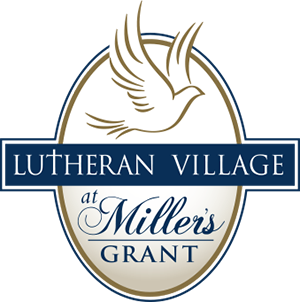Health Talk: Managing Parkinson’s Disease with Speech Therapy
Parkinson’s disease is a progressive movement disorder that affects nearly one million Americans. Research reveals Parkinson’s disease is caused by a loss of dopamine in the brain, but the cause of this loss is unknown. Genetics, exposure to environmental toxins or a combination of these things may play a role.
There is no cure for Parkinson’s disease, but there is ongoing research. Michael J. Fox, an actor with the disease, is a big proponent of research, treatment and awareness. Medications can help control the symptoms. Levodopa, a popular medication for Parkinson’s disease, helps stabilize and manage tremors because when it reaches the brain, the medication is converted to dopamine.
Symptoms
Parkinson’s disease symptoms may vary from person to person; however, most common symptoms include:
• Stiffness in arms and legs
• Tremors
• Slowness of movement
• Poor balance and coordination
• Speech difficulty
Secondary symptoms of Parkinson’s include:
• Depression
• Confusion
• Swallowing difficulty
• Trouble speaking
• Decreased facial expression
Cognition
Cognition issues occur in over 50 percent of people with Parkinson’s disease. Cognition is gaining knowledge and comprehension. Cognitive processes include:
• Attention
• Language
• Learning
• Memory
• Perception
• Thought
Swallowing
At least 50 percent of those with Parkinson’s disease may develop swallowing problems when chewing food, drinking or taking medication.
Voice
Research estimates that 60 to 90 percent of the Parkinson’s population may be at risk of having trouble with communication. Some voice and speech difficulties are:
• Soft voice – voice volume has decreased
• Monotone voice – no inflection when speaking
• Hoarse, scratchy or breathy voice
• Reduced clarity or articulation – words sound mumbled
• Breath support – not enough strength to use their breath to increase the volume
How Speech Therapy Can Help
Speech therapists assist patients in developing strategies to function more independently and safely.
The therapist may recommend assistive devices like an amplification device to help increase volume or the use of notebooks or language boards to write messages. They also include family members, so they can learn to be supportive of their loved ones.
LVST, developed over 30 years ago by Speech-Language Pathologist Dr. Lorraine Ramig, specifically helps those with Parkinson’s disease increase speech volume and judge their loudness. Sessions are four days per week for four consecutive weeks. Patients commit to completing the program, which includes homework practice for 30 days. Research shows improvements in voice and communication last for approximately two years after completing the program and continuing vocal exercises.
To help remedy swallowing issues, a speech therapist may recommend food changes, muscle strengthening or the Lee Silverman Voice Technique (LVST), which our team is trained to provide.
For cognitive issues, speech therapists may recommend memory strategy activities such as crossword puzzles, word searches, reading and sudoku. These activities keep the brain active.
The goal is to slow the progression of Parkinson’s and teach those with the disease skills and techniques to have a good quality of life.
Learn about our Rehabilitation services including outpatient services for Howard County residents who have Medicare as their primary insurance.
Myra J. Sydnor, M.S., CCC-SLP is a speech-language pathologist at Lutheran Village at Miller’s Grant. She has a master’s degree and a certificate of clinical competence in speech-language pathology.

